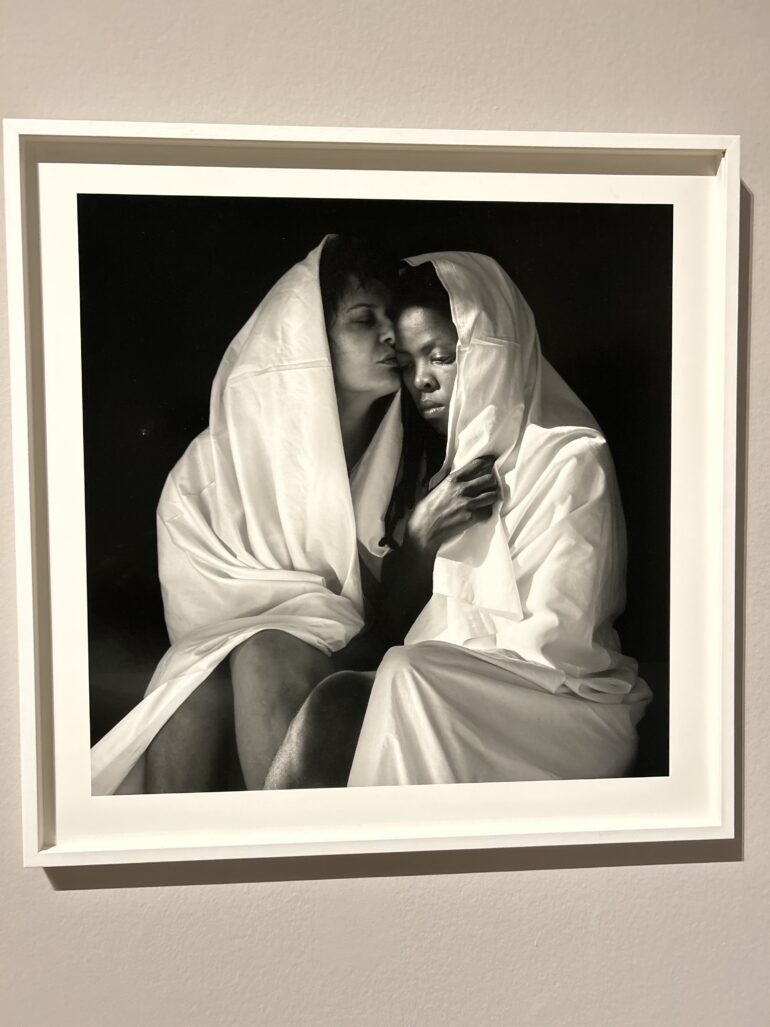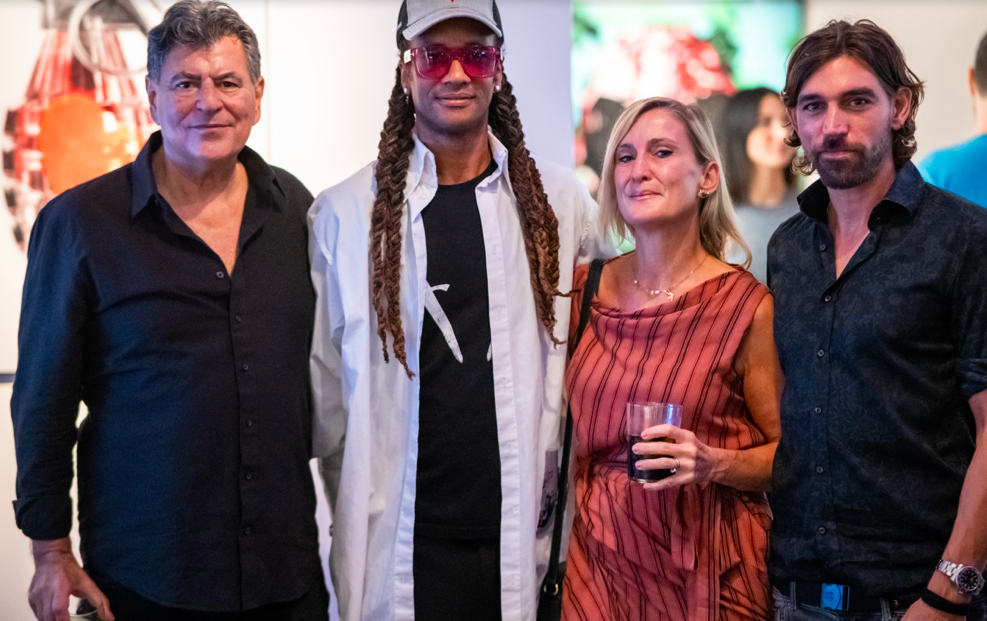A major UK survey of visual activist Zanele Muholi returns to Tate Modern, opening to coincide with Pride Month and continuing until 26th January, 2025. The first major UK survey of Muholi’s work was originally exhibited at Tate Modern in 2020 but was cut short due to the pandemic and subsequent national lockdown. A revised and expanded version of the exhibition opens at Tate Modern following a critically acclaimed and record-breaking European tour. One of the most acclaimed contemporary photographers, Muholi’s images have been exhibited all over the world.
Muholi’s extensive solo exhibition is a powerful, visual celebration of South Africa’s LGBTQI+ communities. Visual activist, photographer and multi-media artist Zanele Muholi (b.1972) has documented and celebrated the lives of South Africa’s Black lesbian, gay, trans, queer and intersex communities for over 2 decades.
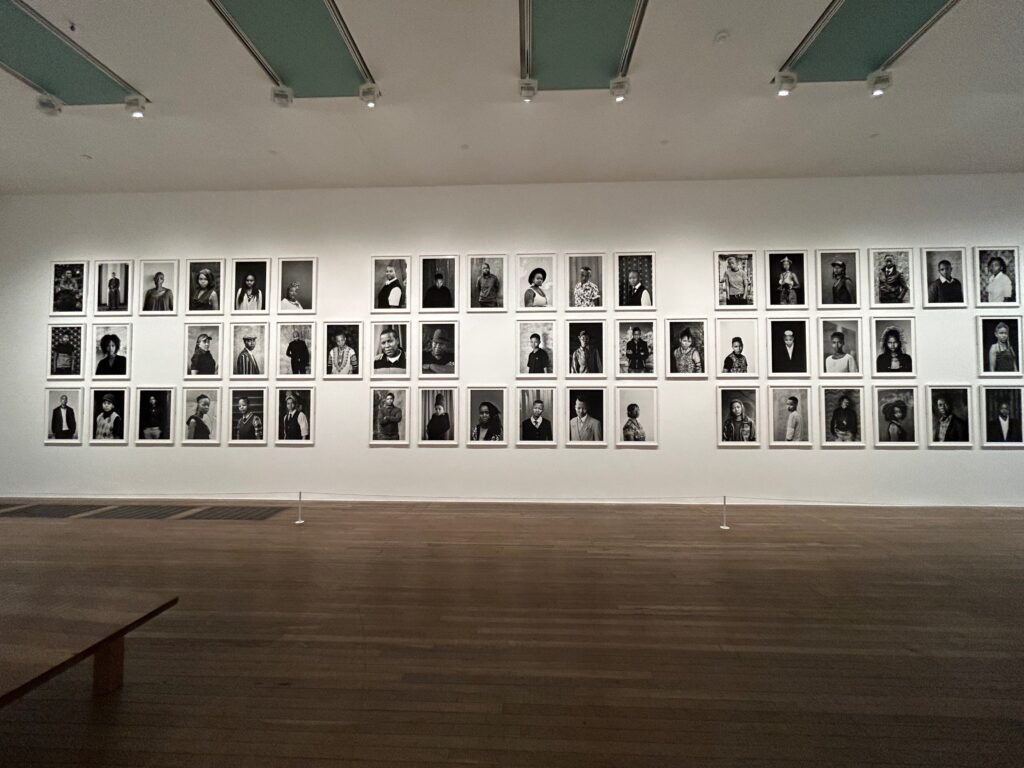
They examine issues of gender and racial equality in South Africa and further afield, challenging outdated art historical and societal notions of beauty and gender via the medium of photography, sculpture and film. Black Queer beauty is celebrated and immortalised through Muholi’s lens.
Muholi’s captivating imagery challenges dominant ideologies and presents portraits of the South African LGBTQI+ community as empowered individuals proudly existing and resisting prejudice, intolerance and often violence.
At the entrance to the exhibition, a quote by Zanele Muholi on the wall declares: “My mission is to rewrite a Black, Queer and Trans visual of South Africa for the world to know of our resistance and existence at the height of hate crimes in South Africa and beyond.”
In the first room are several photographs that sensitively examine the devastating effects on a victim of hate crime. ‘Hate Crime Survivor I, Case number 2004’ shows the hands of a victim of ‘corrective rape’, a term used to describe a hate crime in which a person is raped because of their perceived sexual orientation or gender identity, with the intention of enforcing heterosexuality or gender conformity. A series of portraits Muholi’s Faces and Phases project line the walls of the same room, an ongoing series since 2006 currently amounting to more than 600 prints, celebrating and archiving the lives of Black lesbians, transgender and non-conforming people. Each participant in the Faces and Phases series fixes the viewer with a gaze conveying their bravery and defiance in the face of discrimination and oppression.
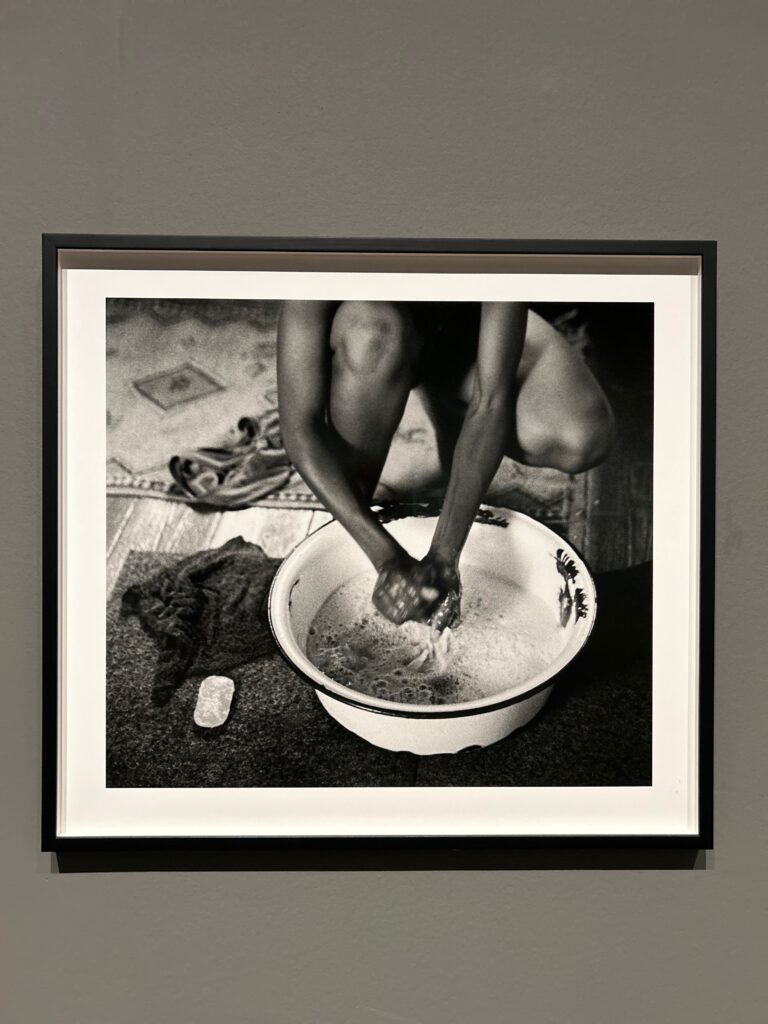
South Africa underwent major social and political changes during the 1990s, and the country’s 1996 post-apartheid constitution was the first in the world to outlaw discrimination based on sexual orientation. Sadly, the LGBTQIA+ community remains a target for violence and prejudice to this day.Muholi’s ongoing photographic project acts as a living archive of the LGBTQIA+ community in South Africa and worldwide.
Muholi’s poignant quote explains: “It is important to mark, map and preserve our mo(ve)ments through visual histories for reference and posterity so that future generations will note that we were here.”
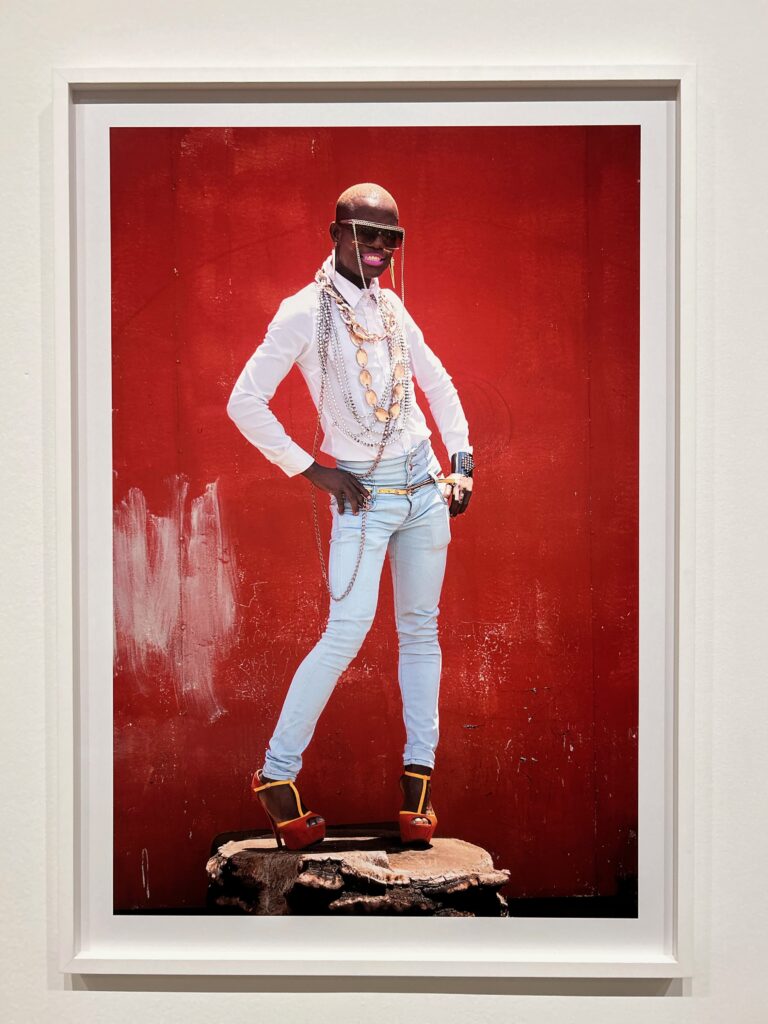
Ncinda (2023), an eye-catching bronze sculpture in the adjacent gallery celebrates the anatomy of the clitoris. Ncinda is an isiZulu word translating as ‘squeezing’, and the sculpture is a visual metaphor for the quest for freedom, sexual pleasure and pride in one’s sexuality that are central to Muholi’s artistic practice.
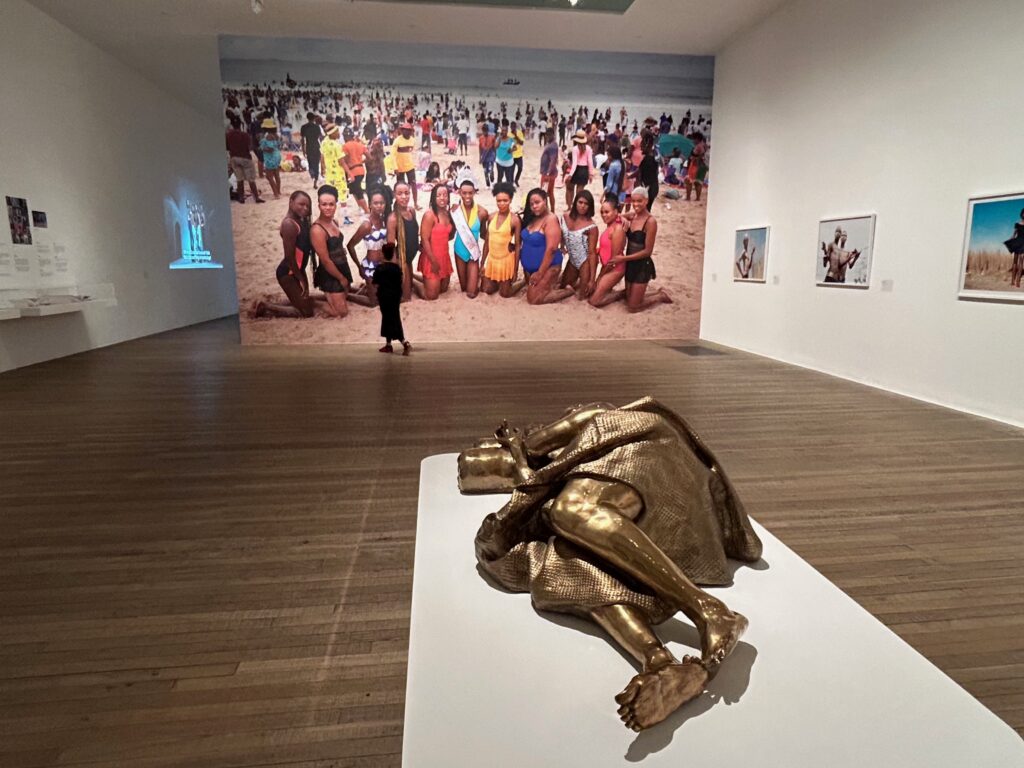
There is also a celebratory feeling to the exhibition, particularly in a room dedicated to ‘Queering Public Space’, which features Muholi’s Brave Beauties series of images celebrating winners of Miss Gay Beauty pageants and non-binary people and trans women. Muholi photographs the community in public places, including historically significant locations such as Constitution Hill, the seat of South Africa’s Constitutional Court, and Durban Beach, close to their birthplace of Umlazi. Beaches were segregated in South Africa during Apartheid, so by photographing the LGBTQI+ community in these spaces, Muholi reclaims the space, or in their words “we’re ‘queering the space in order for us to access the space.”
Dramatic monochrome self-portraits from Muholi’s acclaimed Somnyama Ngonyama (‘Hail the Dark Lioness’ in isiZulu) series dominate a central gallery of the exhibition. By turning the camera on themself, the artist adopts different poses and characters to address issues of race and representation. From scouring pads and latex gloves to rubber tires and cable ties, everyday materials are transformed into politically loaded props. By enhancing the contrast in the photographs, Muholi also emphasises the darkness of their skin tone, owning their Blackness with pride and asserting its beauty.
Muholi has expanded their portraiture practice into sculpture since 2020. The gallery also features powerful sculptures Mmotshola Metsi (‘The Water Bearer), The Brave II, a 2023 Bronze self-portrait of Muholi depicted as a mythical being carrying a vessel embellished with uteri, emerging from water in a spiritual acct of rejuvenation, and Muholi IV, 2023, a self-portrait of the artist bound by rope laced around their chest and neck.
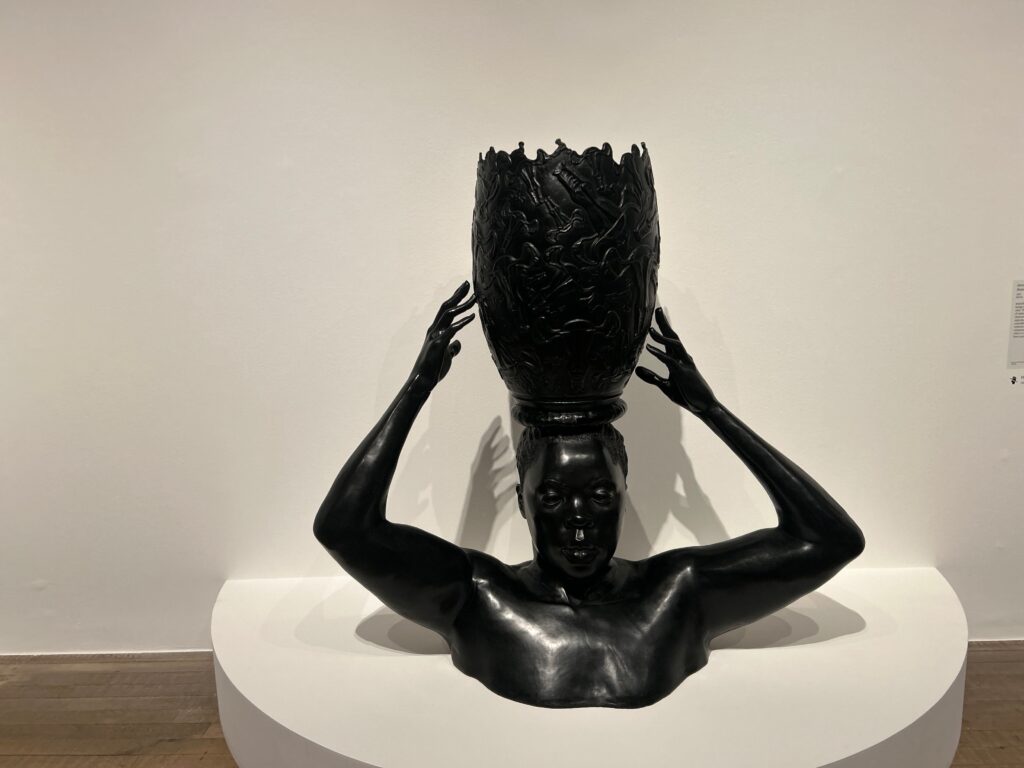
The exhibition culminates on a gallery focused on collectivity, featuring images of protest and Pride marches and funerals. Also featured here is the Muholi Art Institute in Cape Town, established by the artist in 2021 to offer artist residencies, studio and exhibition spaces for up-and-coming creatives from underserved backgrounds in South Africa. South African singer and award-winning musician Toya Delazy has created a soundscape for the exhibition.
Muholi’s work has been exhibited at Documenta 13; the South African Pavilion at the 55th Venice Biennale; and the 29th São Paulo Biennale. Solo exhibitions have taken place at institutions including the Stedelijk Museum, Amsterdam; Autograph ABP, London: the Mead Art Museum, Amherst; Gallatin Galleries, New York; Open Eye Gallery, Liverpool; Brooklyn Museum, New York; Kulturhistorek Museum, Oslo; Einsteinhaus, Ulm; Schwules Museum, Berlin; and Casa Africa, Las Palmas. Muholi’s work is included in the collections of the Boston Museum of Fine Arts; the Brooklyn Museum; the Carnegie Museum of Art; the Guggenheim Museum; the Museum of Modern Art New York; the San Francisco Museum of Art; Tate; and the Victoria and Albert Museum among others.
Zanele Muholi is at Tate Modern, London until 26th January, 2025.


